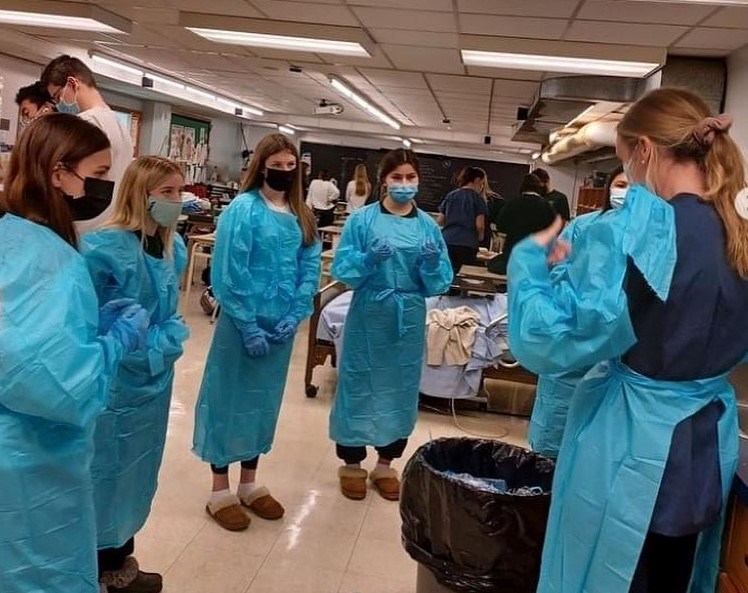THUNDER BAY — Thunder Bay's post-secondary institutions will each offer standalone four-year Bachelor of Science in Nursing programs starting next year.
It means the end of a collaborative program provided by Confederation College and Lakehead University since 2002.
The combined enrolment target for the two separate programs will be 114 (64 at Lakehead University and 50 at Confederation College), an increase of 14 from the current enrolment in the joint program.
Tuition fees at the two schools will be similar.
The schools have run the collaborative program since 2002, with students taking instruction at various times on each campus. It was implemented as the result of a government directive requiring all graduating registered nurses in Ontario to have a degree.
But in 2020, Ontario's colleges gained the opportunity to offer four-year nursing degree programs on their own after a policy change by the Ministry of Colleges and Universities, aimed partly at increasing capacity across the province.
Confederation College is now taking advantage of that change, announcing Tuesday that it will launch its own Bachelor of Science in Nursing program in the fall of 2023.
College President Kathleen Lynch said its program will help address the growing need for nurses in northwestern Ontario.
"Our program offers students the opportunity to complete a hands-on, four-year degree program in our state-of-the-art facilities. Our equipment and resources are also state-of-the-art and replicate the resources students will use in the field, allowing them to transition seamlessly into the workplace," Lynch said in a statement.
She added that the college has embedded its seven Indigenous Learning Outcomes in the curriculum to help reflect the region it serves.
The college will also introduce a new Practical Nursing-to-BScN bridging program in 2025, allowing students who have completed the two-year practical nursing diploma program to transition into the third year of the BScN program.
Lynch said it means graduates of the practical nursing program will be able to obtain their degree in just over two years.
Lakehead University, which has trained nurses since 1965, said resuming its standalone BScN program will help address the growing healthcare needs across the province, specifically in Northern Ontario.
It said its program will continue to focus on Northern, rural and Indigenous health issues.
"The program will integrate high-fidelity simulation scenarios, hands-on lab experiences and clinical experiences each year with opportunities in specialty areas such as pediatrics, obstetrics, mental health, complex care of older adults, and community health settings," the university said in a news release.
Lakehead students also have the option of obtaining their degree in three years through a compressed program.
Mirella Stroink, dean of the faculty of health and behavioural sciences, described the collaborative program with the college as "very successful."
But she told TBnewswatch "There's certainly need for more nurses.This allows each institution to use its capacity to the maximum of its ability...and produce as many high-quality nurses as we can for the region."
Stroink said that on the heels of COVID-19, regional health care institutions including hospitals and others face challenges finding enough nurses
As of last month, Thunder Bay Regional Health Sciences Centre was looking to fill 73 RN positions while St. Joseph's Care Group was trying to recruit 24.
"It's going to be an interesting time going forward, looking at how nursing education evolves in this new landscape, where colleges and universities are both offering degree programs," Stroink said.
"I think we have unique strengths and connections to leverage, and related programs that infuse and inspire the education that the nurses receive. There will be distinctions between the programs, and both will be excellent, high-quality programs."
— TBNewswatch




